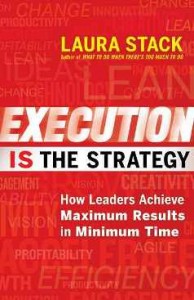
Brief breakthroughs can come at any time. “I wish I knew how important brevity was for me 30 years ago.” That’s a powerful confession to hear from an accomplished Fortune 500 professional. I had just wrapped up a “Brief Leadership” seminar with a group of manufacturing managers and one of their senior leaders pulled me aside afterward. I thought he was going to thank me or ask a follow-up question. “I just can’t help myself with words,” he lamented. I was floored by his candor. Recognizing that his successful career, nearing its end, had been filled with constant falling into temptation to over-explain, he confided to me that his default mode was to dump on his subordinates and give them lengthy lectures. He was looking me straight in the eye, completely serious and … [Read more...]











